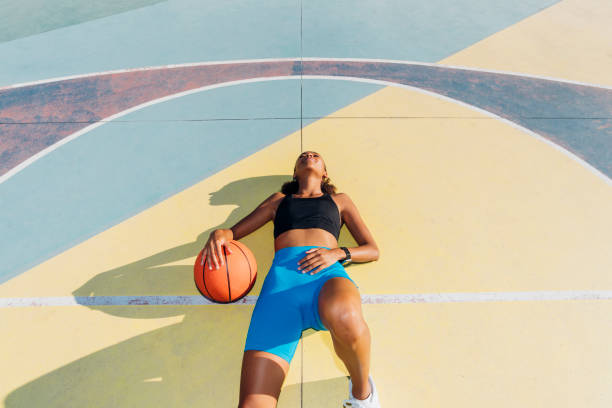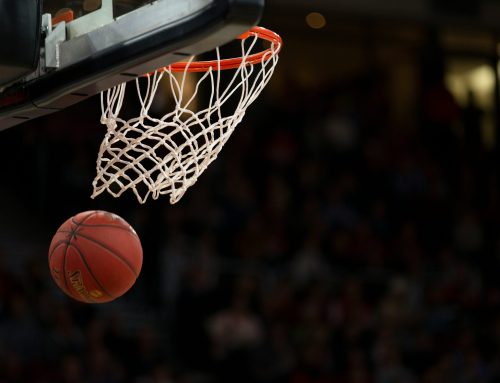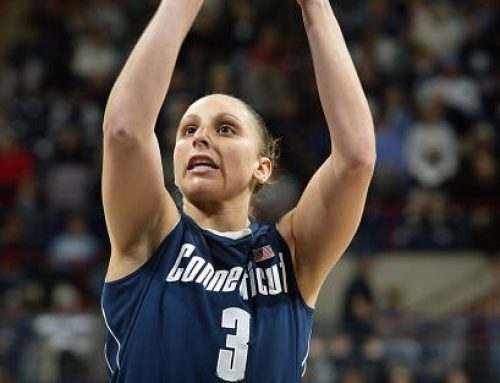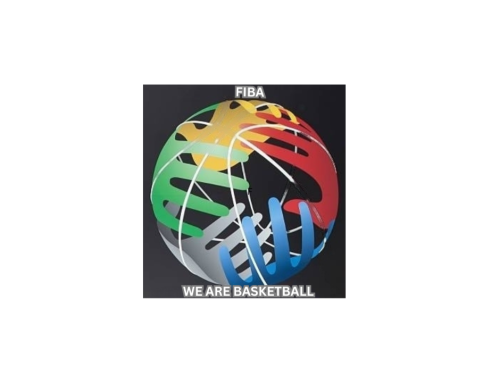
7 Pro Athlete Sleep Hacks for Peak Performance
Ever wondered why elite athletes seem to possess an otherworldly charm on the field? It’s not just the hours they clock in practice. A significant player in the game of peak performance is often found in the quiet realms of sleep. Yes, those eight hours of nightly shut-eye might just be the secret behind those breathtaking slam dunks and lightning-quick sprints.
For athletic performance, protein shakes and exercise always take the crown. However, athletes should have an equal amount of restful sleep along with good food. So their body can process through the toughest time and they last long in the field. Read what ballers eat to remain fit. In essence, sleep is the foundation of an athlete’s physical and mental prowess. Herein we discuss the 7 pro athlete sleep hacks that your favourite top sports stars follow.
Sleep and Athletic Performance
Sleep optimizes the body for peak performance. As athletes push their physical limits, the quality and duration of their sleep become paramount. Good sleep acts as a potent catalyst in releasing growth hormones and promoting muscle repair. Simultaneously, sleep fosters the cognitive functions that are pivotal in decision-making in the field.
The connection between quality sleep and improved physical performance is significant. Athletes who get enough sleep perform better because they are less susceptible to injury and have higher energy levels. Sleep helps athletes recover from workouts. According to a systematic review evaluating the effectiveness of sleep interventions for athletes aimed at improving performance outcomes, sleep extension was the most beneficial intervention, while napping, sleep hygiene, and post-exercise recovery strategies provided mixed results.
Sleep quality can also impact the shooting accuracy and sprint times of basketball players. Improved sleep is not good for basketball only, but it can also increase athletic performance in tennis players, swimmers, weightlifters, and more. Therefore, athletes should adopt healthy sleep habits.
7 Performance-Enhancing Sleep Hacks
#1: Prioritize Consistent Sleep Schedule
Our body has its own clock that makes us sleep, yes, the circadian rhythm. A well-established sleep routine syncs your internal clock, signalling when it’s time to close your eyes and prepare for dreamland. Even if you don’t want to sleep, just make sure to be in your bed and close your eyes when it’s your nap time.
Tips for Healthy Sleep Schedule
Here are the tips to make sure you sleep well.
- Set a Bedtime: It’s about training your body and mind to recognize the time for dreamland. Choose a bedtime that accommodates the recommended 7-9 hours of sleep, ensuring a restful voyage each night.
- Create a Pre-Sleep Routine: Engage in activities that signal the impending descent into slumber. This could involve reading a calming book, practising mindfulness meditation, or indulging in a warm bath.
- Avoid Variations on Weekends: While the temptation to deviate from your weekday routine might be strong, maintaining a consistent sleep schedule even on weekends can fortify your body’s internal clock. Strive to resist the allure of late-night Netflix binges or marathon gaming sessions.
#2: Set Ideal Sleep Duration
There should be the right amount of sleep either for a commoner or an athlete. Because having not sleep enough can affect physical and mental health. Moreover, it can also increase the risk of accidents, and mood disorders. However, the perfect amount of sleep duration can vary widely across different age groups and populations.
Here are some tips for setting ideal sleep duration:
- Sleep 7-8 hours per night.
- Avoid day naps.
- Try different nap times and adjust accordingly.
- Prefer quality over quantity for sports performance. Like 2 hours of quality sleep is much better than the 6 hours of disturbed sleep.
The Risks of Oversleeping
As we mentioned that you need to find your magical hours of sleep. But monitor your sleep because you don’t want to overdo it. Besides, excess of all the good things is bad. And oversleeping can still have negative health effects like diabetes, heart disease, and even death. Oversleeping has also been linked to impaired cognition, increased inflammation, and consistent headaches. Therefore, it’s important to sleep just right.
#3 Create a Sleep-Inducing Environment
For a good amount of rest, the place where you sleep also matters. Therefore, wear your favourite pyjamas and land on a comfortable bed that beckons you after a gruelling training session. Moreover, customize the perfect sleeping atmosphere where you can instantly dream.
Tips for a Cozy Sleeping Environment
Here we got you with the perfect air to breathe in and sleep. Follow these tips:
- Choose Right Mattress and Pillows
Never take your mattress and pillows as an accessory. Treat them like your sleep partners. Always go for a mattress that supports your unique sleep style and body type. Explore options like memory foam, latex, or innerspring for your mattress. Body pillows that keep your spine in place are the best and can offer support and comfort in all the right places.
- Control Noise and Light
Invest in blackout curtains to shroud your room in darkness. White noise machines or earplugs can create a sonic shield against the noisy outside world, ensuring uninterrupted sleep. Dim the lights as bedtime approaches. Consider using low-wattage bulbs with a warm hue to mimic the soothing glow of a sunset, signalling the dreams.
- Adjust Appropriate Room Temperature
Athletes, your sleep heaven shouldn’t be too hot, or too cold, but just right. Cleveland Clinic suggests that a cooler room, somewhere around 60-67°F (15-20°C) can induce more restful sleep. Experiment with breathable bedding and layers to find the sweet spot for your optimal sleep temperature.
#4: Optimize Nutrition and Hydration
As an athlete, sleep is required for performance, and so do nutrition and hydration. Sleep and nutrition are closely related because various nutritional interventions can improve sleep quality and quantity. Certain ancient foods from diverse corners of the world may hold the key to better sleep for basketball players and athletes in general. These time-tested, culturally rooted dietary choices bring unique blends of nutrients to the table, fostering an environment conducive to restorative sleep.
Head over to Activ Nutrition to discover a curated list of 12 foods that could improve your sleep quality! From the soothing properties of chamomile tea to the magnesium-rich banquet of nuts and seeds, each food item carries a unique set of sleep-inducing attributes.
Staying Hydrated for Improved Rest
While the relationship between food and sleep is profound, hydration is another key player in the arena of restful nights. Basketball athletes, in particular, have honed their diets to conquer the court, and understanding their hydration secrets can be a twist for your success. Additionally, basketball athletes eat hydrating foods (bananas, sweet potatoes, spinach) to improve their court performance.
#5: Take up Sleep Supplements
Usually, you should try good food to fulfil your sleep. But if you still have trouble with snoozing, probably go for the supplements. Our body already has melatonin, the natural sleep hormone that regulates sleep. But in some people, this hormone stops functioning due to age, stress or probably extensive physical training like athletes do. So in that case you can take up some melatonin pills or capsules to sleep better and perform better. Melatonin supplements are over-the-counter and can be effective for improving sleep.
There are many other sleep supplements. One such supplement is the Dream Sleep Formula from Activ Nutrition. It is totally safe because of the natural ingredients like valerian root and magnesium. Another sleep supplement is the Sweet Dreams Blend Superfood. This Superfood contains ashwagandha, passionflower, and chamomile, which can help you relax. It also contains chocolate powder for a flavour twist.
When To Visit Doctor?
Go and ask your doctors, when and how much sleep supplements to consume. Maybe you don’t need one. And if you need some, they will help you determine which supplements are safe for you while considering any underlying health issues that may be affecting your sleep.
# 6: Focus on Stress Management
The intricate dance between stress and sleep is a well-documented affair. When stress hormones take the control over body, the balance of the sleep-wake cycle is disrupted. Athletes, more than anyone, can understand the worst effect of stress on their bodies and minds.
To navigate this complex relationship, athletes must recognize stressors unique to their profession. It’s not just the pressure of a game or the expectations of fans. Rather it’s the cumulative effect of rigorous training, travel fatigue, and the constant demand for peak performance. Acknowledging these stressors is the first step towards mastering the art of stress management.
Relaxation Techniques for Athletes
Here are the relaxation techniques that pro athletes use to manage stress and improve sleep.
One powerful approach is meditation and mindfulness, a mental reset button that tunes the mind away from stressors. Likewise, breathing exercises offer a tangible bridge between the frantic pace of the game and the serenity of sleep. With controlled, rhythmic breathing, athletes can coax their bodies into a state of calm, signalling the nervous system that it’s time to unwind.
Yoga and stretching, often synonymous with flexibility and injury prevention, extend their benefits to stress reduction. The deliberate movements and poses in yoga not only enhance physical suppleness but also serve as a moving meditation. Stretching, in its quiet simplicity, becomes a bridge between the physical exertion of the day and the repose of the night.
Find the Top 10 Easy Stress Management Techniques!
#7: Limit Technology for Optimal Sleep
You simply cannot leave your phone alone for a while but if you want peak body performance you have to limit tech-devices. Because the harsh blue light emitted by smartphones, tablets, and laptops disrupts our body clock and our brains think it’s daytime when it’s actually bedtime. This interference can lead to a delay in the release of melatonin, the sleep hormone, making it harder for athletes, or anyone, to drift into a restful slumber.
To put it simply, our gadgets are like sleep burglars. The mental stimulation induced by scrolling through social media or engaging in intense video gaming can linger in our minds, making it challenging to transition from the day’s activities to a peaceful night’s sleep.
Digital Detox Strategies
Limiting technology can be difficult but it is not impossible because all you need is a good digital detox. Here are some tips for a complete digital detox:
- Take some time away from screens.
- Turn off push notifications.
- Create tech-free areas within your home.
- Engage in physical activities often.
- Practice deep breathing techniques.
- Volunteer or help someone.
Do you really need a detox? Dive into the relationship between digital detox and eye health!
FAQS on Sleep Hacks for Peak Performance
Can pro athletes benefit from sleep hacks?
Absolutely! Pro athletes can gain a competitive edge with sleep hacks. Quality sleep enhances recovery, boosts focus, and supports overall performance.
What is an ideal sleep routine for athletes?
The ideal sleep routine for athletes involves 7-9 hours of quality shut-eye. Consistent bedtime, a cool room, and a screen-free wind-down can make a huge difference.
Are there any performance-enhancing sleep secrets for basketball players?
Why not! Basketball players, listen up! Power naps, strategic pre-game sleep, and maintaining a sleep schedule can be your secret weapons for on-court excellence.
How does sleep affect sports performance?
Sleep improves reaction time, decision-making, and muscle recovery. Athletes, who snooze well, perform well.
Do athletes use sleep supplements?
Yes, many athletes use sleep supplements like melatonin or magnesium to optimize their rest. However, it’s crucial to consult with a healthcare professional before diving into the supplement game.
Are sleep supplements safe for athletes?
Generally, sleep supplements are safe for athletes when used responsibly. Stick to recommended doses and avoid dependency to ensure a healthy sleep routine.
How does nutrition impact an athlete’s sleep?
Nutrition plays a vital role in an athlete’s sleep. Opt for sleep-friendly snacks like almonds or a banana, and stay hydrated. A well-fueled body is more likely to catch those dreams.
Can sleep aid in faster sports recovery?
Without a doubt! Quality sleep is a natural recovery booster. It helps repair muscles, reduces inflammation, and gets athletes back in the game faster. Sleep is the ultimate MVP for sports recovery.
Ending Remarks
A good night’s sleep is a necessity for an athletic life. It’s more likely to be supercharging your performance on the field or court. Therefore, make sleep a non-negotiable part of your training regimen, and witness its impact on your game.
So, there go – seven pro athlete sleep hacks to perk up your performance. Each tip contributes to a holistic approach to sleep, simply worth trying. Moreover, with sleep hacks try sleep-enhancing products like Magnesium Sleep Lotion and Magnesium Sleep Flakes to rest well.
Invest in your sleep, invest in your performance!



